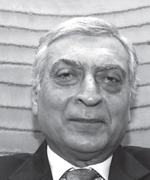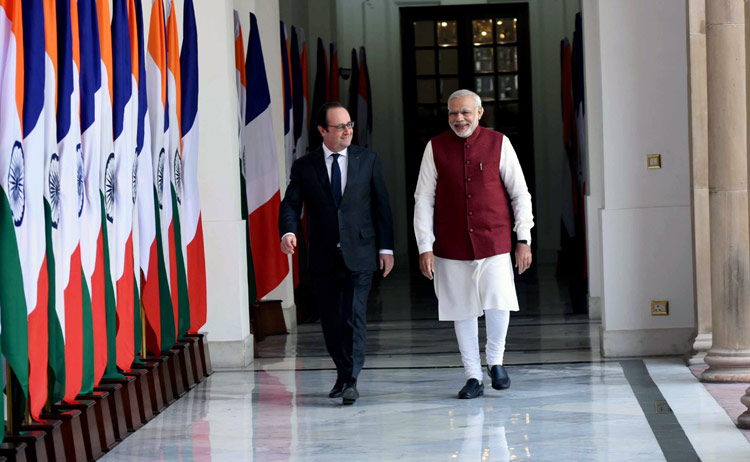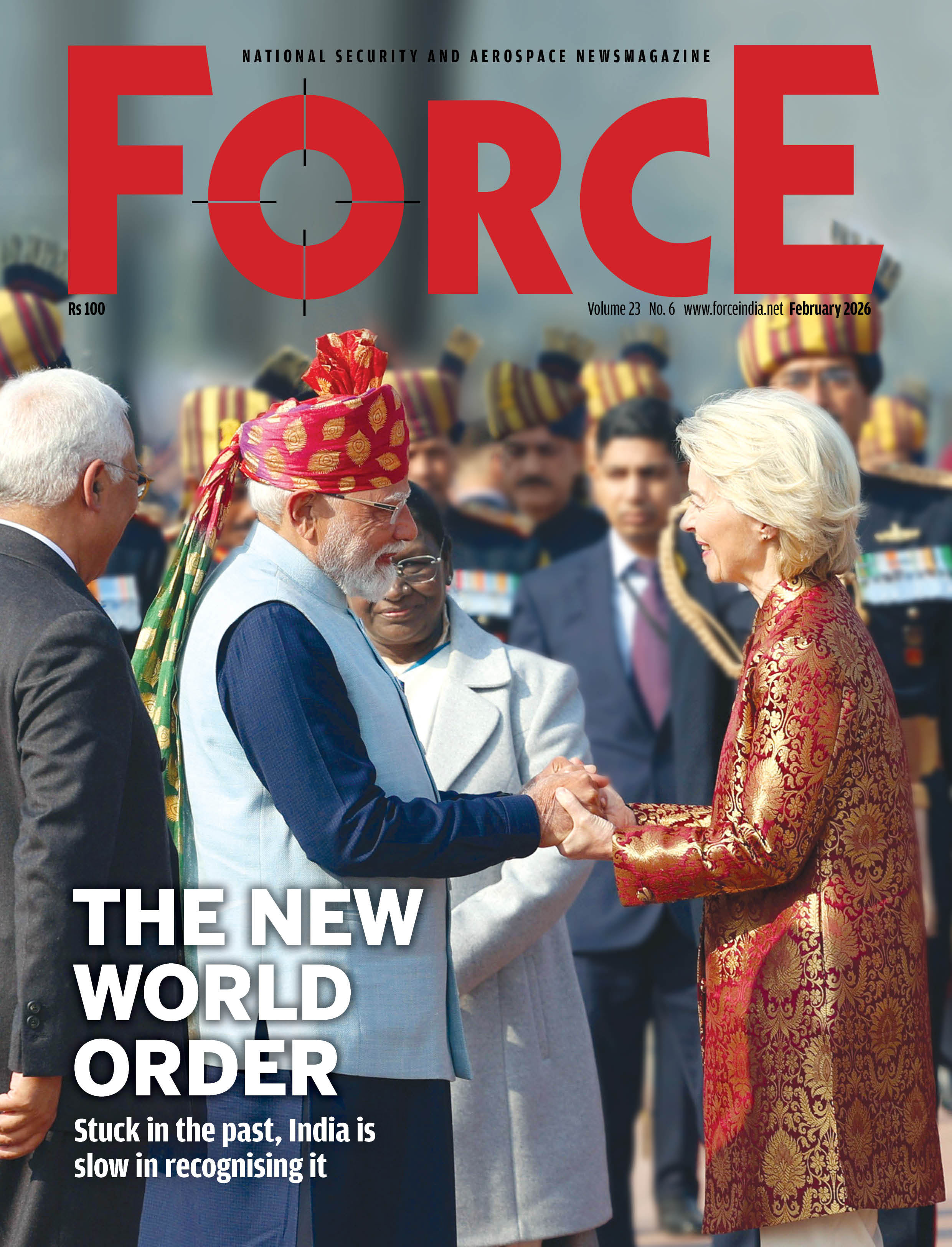Guest Column | French Embrace
 Kanwal Sibal
Kanwal Sibal
The India-France strategic partnership has got a boost by President Francois Hollande’s visit to India as chief guest at our Republic Day celebrations, fifth time that a French leader has been so honoured. Following nine months after Prime Minister Narendra Modi’s bilateral visit to France which yielded substantial results and set at rest murmurs about the absence of Europe in his intensive foreign travel plans after assuming power, Hollande’s visit has consolidated gains accomplished in April 2015 and, indeed, expanded them, and therefore has not remained only at the ceremonial level. The participation of a foreign military contingent in the parade - in this case a French regiment - is unprecedented and reciprocates the gesture made to us by the French in inviting an Indian contingent to march on the Champs Elysees on Bastille Day in July 2008.
If conventional wisdom were accepted that today economics matters much more than politics or security in relations between states, the relatively moderate scale of Indo-French economic ties would not prima facie justify the exceptional gesture that we have again made to France on our Republic Day. What then would explain why we are drawn towards France as a privileged partner and why we accord it such distinction?
Of the several explanations one has been our historical need to have a partner in Europe for protecting our political, security and economic interests at a time when Europe’s weight in international affairs was much greater than it is today. Europe was important for us also for maintaining a balance in our international relations between the West and the East, consistent with our policy of nonalignment. On top of this, our foreign policy differences with the US as the leader of the western world on vital strategic issues required us to prevent the emergence of a consolidated western block against us. Imposition of sanctions, denial of technologies, negative interference in our neighbourhood, and even pressure on human rights and other social issues, have characterised our ties with the US, to which Europe, too, was party to different degrees. France was no doubt a member of the western alliance and the US-led technology denial regimes, and took its adherence to its ‘international’ commitments seriously, but it has nevertheless always given itself some margin of manoeuvre in dealing with India as part of its attachment to an independent foreign policy. With the UK’s foreign policy too closely tied to that of the US and Germany’s external relations constrained by the legacy of World War II, France stood out for us as a country that could be most gainfully befriended within Europe in our national interest.

French President Francois Hollande with PM Narendra Modi
Today, our own relations with the US have greatly improved, to the point that we have now a strategic partnership with it, and France, too, is working closely with the US within the NATO framework. To that extent the independence of French foreign policy has diminished geopolitical salience for us today, even though both countries still subscribe to the concept of strategic autonomy and mention it in our joint statements, as was done again during the recent visit by Hollande. What remains relevant and underpins our relationship with France is its breadth, which is not matched by our other partners in Europe. Our strongest economic partnership is with Germany, while language, education and people to people contacts tie us most to the UK. But with France, in addition to substantial economic ties, cultural exchanges and growing educational contacts, it is cooperation in strategic areas like nuclear, space and defence that gives the relationship a dimension of its own. Even with the current upgraded ties with the US, the levels of nuclear, space and defence cooperation are not of the same order if we take these three areas as a whole, though the scope of our ov
Subscribe To Force
Fuel Fearless Journalism with Your Yearly Subscription
SUBSCRIBE NOW
We don’t tell you how to do your job…
But we put the environment in which you do your job in perspective, so that when you step out you do so with the complete picture.








 VIDEO
VIDEO